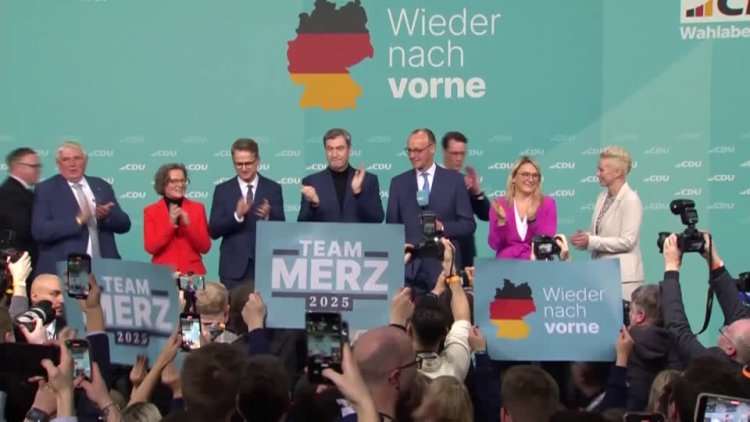Germany's CDU wins election, AfD doubles support

In the German federal election held the conservative Christian Democratic Union (CDU) and its Bavarian sister party, the Christian Social Union (CSU), emerged as the leading force. Friedrich Merz, leader of the CDU, expressed his intention to swiftly form a government with a stable parliamentary majority. He emphasized the importance of a proactive Germany within Europe and acknowledged the challenges ahead.
The election also marked a significant surge for the far-right Alternative for Germany (AfD), which doubled its support compared to previous elections. This unprecedented gain positions the AfD as a considerable force in the Bundestag.
Incumbent Chancellor Olaf Scholz of the Social Democratic Party (SPD) conceded defeat, congratulating Merz on his victory. Scholz urged the CDU to refrain from collaborating with the AfD, emphasizing the importance of maintaining democratic values.
The Free Democratic Party (FDP) failed to secure seats in the new parliament, leading to the resignation of its leader, Christian Lindner, who announced his retirement from active politics.
International reactions poured in following the election results. As coalition talks commence, Merz faces the complex task of forming a government. Potential partners include the SPD and the Greens, but both parties have expressed reservations, particularly concerning policy differences and the CDU's campaign rhetoric. The SPD, under the proposed leadership of Lars Klingbeil as the new parliamentary group leader, is undergoing internal discussions about its future direction.
The AfD's significant gains have raised concerns among mainstream parties and international observers. Alice Weidel, co-leader of the AfD, celebrated the party's historic results, which reflect a growing shift in the German political landscape.















